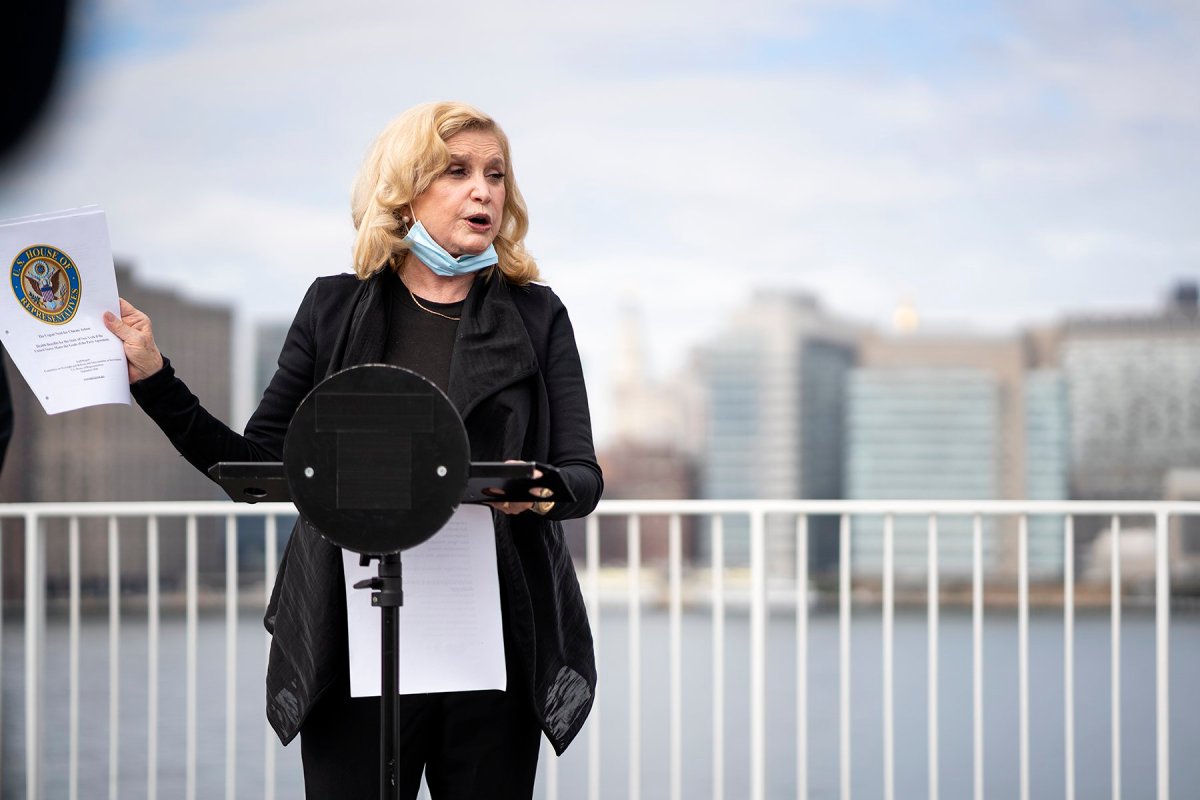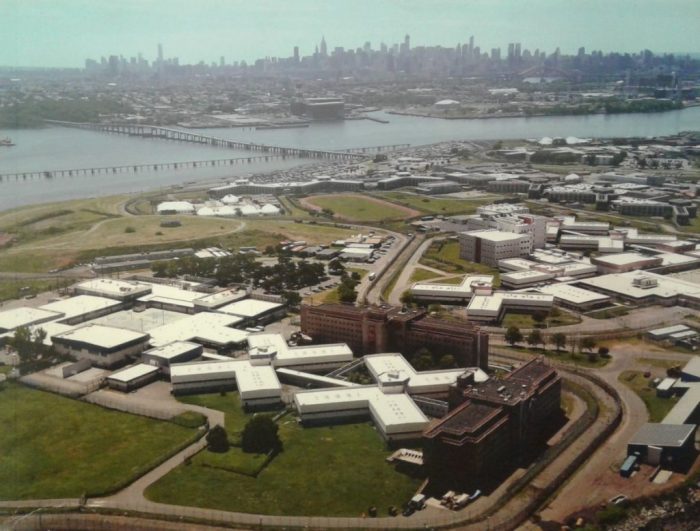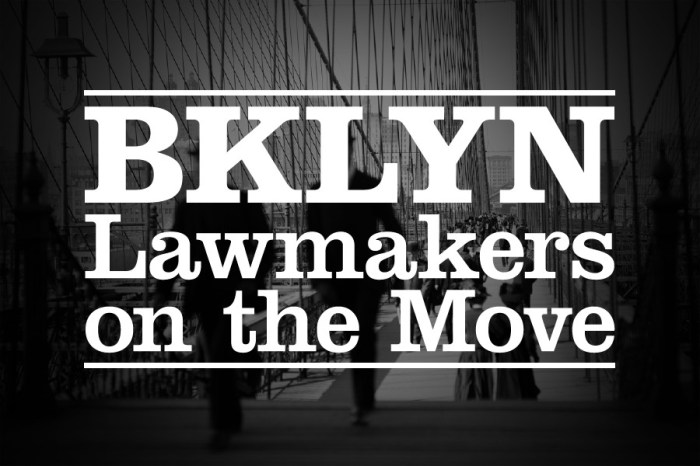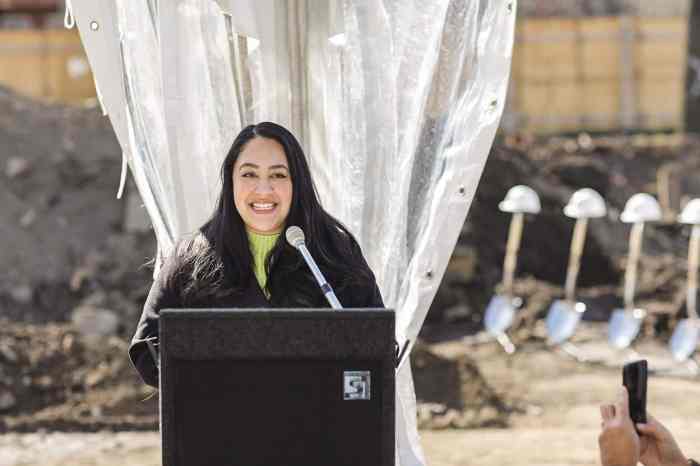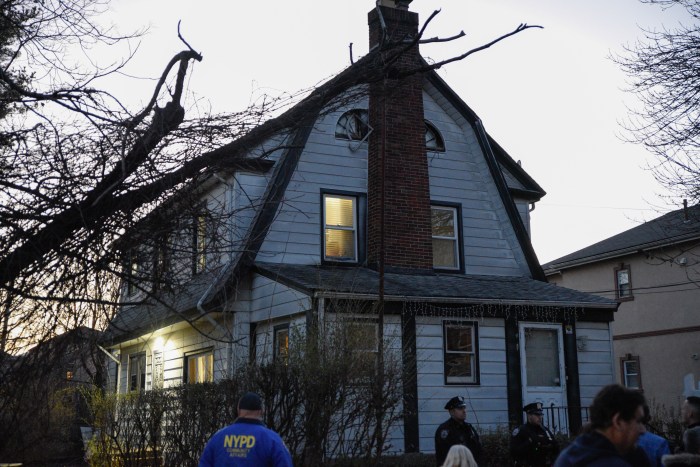Amid the COVID-19 pandemic, the economic recession and the nationwide protests for racial justice, House Oversight Committee Chair Carolyn Maloney (D-Manhattan, Brooklyn, Queens) wants to remind us about the greatest existential threat to our planet – climate change.
To honor the end of Climate Week NYC last Saturday, Maloney joined a number of local climate and community advocates at the Overpass in Long Island City’s Hunter’s Point South Park. There, they announced the details of a committee report highlighting the economic and health benefits of combating change.
The report comes following Maloney’s Thursday release of the “COR Climate Change Agenda”: a package of six bills that take the suggestions of the Select Committee on the Climate Crisis.
Included among the agenda’s legislation is the “Federal Agency Climate PREP ACT” which Maloney will introduce Tuesday. It will require all federal agencies to plan and coordinate efforts to adapt to address climate change.
Other bills in the package include the already-introduced Postal Vehicle Modernization Act, which would require the Postal Service’s vehicles to become carbon neutral or electric by 2040, and the Public Housing Solar Equity Act, which would protect residents of public housing, including NYCHA, when the authorities that manage them upgrade to become more eco-friendly.
“If we keep global warming below two degrees Celsius over the next 50 years, the benefits will be tremendous,” said Maloney. “Just in our state of New York, hundreds of thousands of hospitalizations, emergency room visits, and premature deaths could be avoided. And the economic value of these health benefits would exceed $3.5 trillion. The United States could take action today to get us closer to that and the other targets of the Paris Agreement…Congress and the Administration have a duty to lead and a responsibility to act without delay.”
Harry Manin of the progressive Sunrise Movement expressed confidence that Maloney is a crucial ally in bringing about the Green New Deal proposed by Representative Alexandria Ocasio-Cortez (D-Astoria, Jackson Heights, Bronx).
“By affirming that the Green New Deal for Public Housing is a day-one priority and pairing today’s report with her commitment to harness the House Committee on Oversight and Reform’s extraordinary powers to achieve climate action now, Chairwoman Maloney is ready to be a key ally in the movement to win a GND during the next Congress,” he said.
Julie Tighe, President of the New York League of Conservation Voters, agreed, insisting the report’s findings were common sense.
“This report shows what we in the environmental movement have known for a long time: that our behavior can affect the climate significantly and that we must listen to the science about the effects of climate change,” she said. “Implementing bold pollution-reduction policies will save lives, save money, create green jobs, and improve our environment.”
Sally Attia of HarborLAB pointed out that humans – particularly those who live in vulnerable areas – are suffering direct, immediate consequences from the effects of climate change.
“Climate chaos demands acceptance that there is no line between habitat and human health. Flooding backs up sewage into basement apartments, which often house our poorest, and transports industrial toxins into farms and backyards,” she said. “Ocean acidification damages the very shellfish we’ll rely upon to clean our water of sewage and runoff pollutants. We must draw down and reverse carbon emissions.”
Rob Basch, President of the Hunter’s Point Park Conservancy, agreed, highlighting the challenges the park faced after Superstorm Sandy.
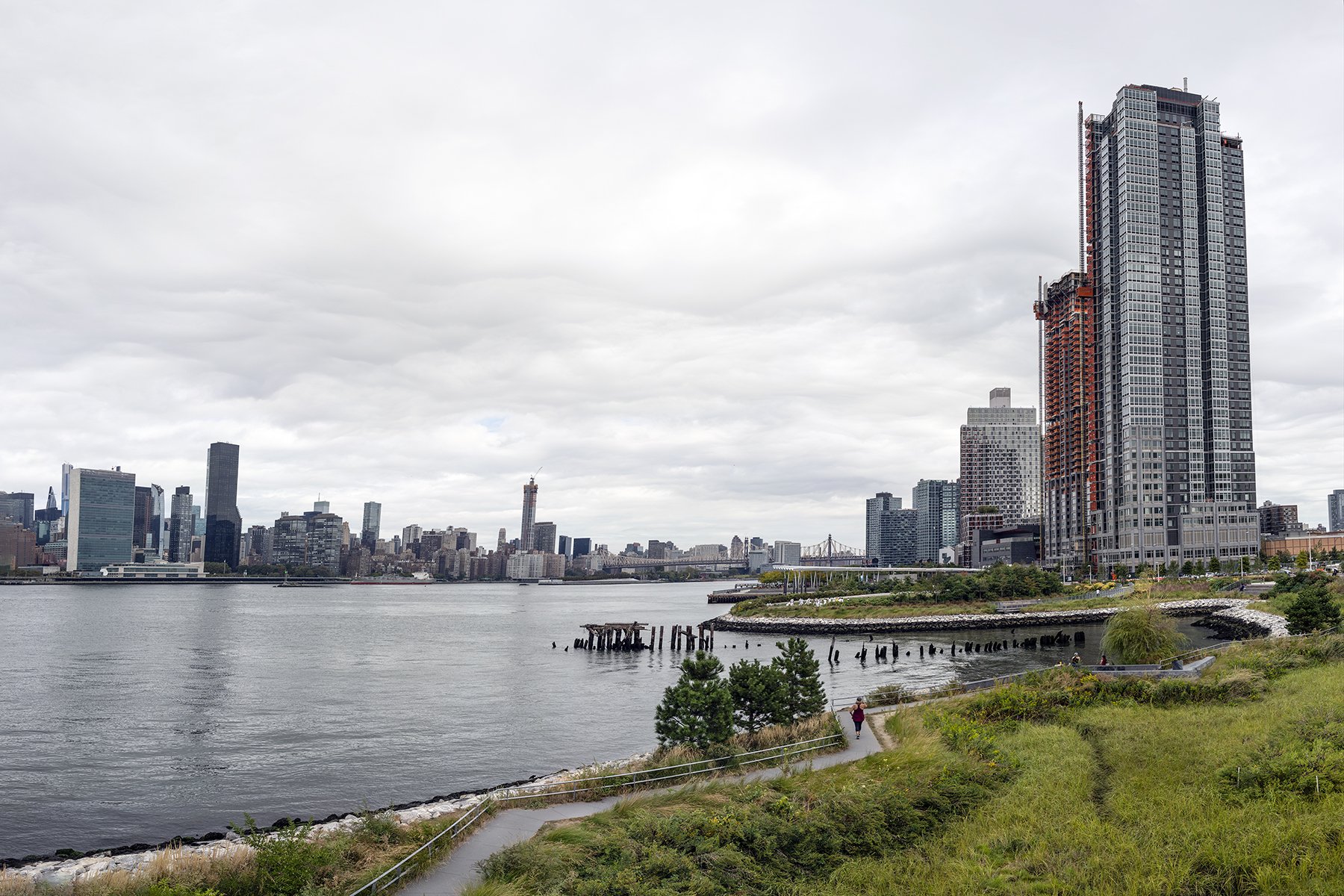
I know first-hand the effects of Global Warming as I live a block from the park [Hunters Point South Park], and we had 5 feet of water in my building lobby when Hurricane Sandy hit,” he recalled. “There are 5 features of the park that make it a model for future parks to combat climate change. These features are tidal salt marshes, native vegetation, berms, bioswales and rip rap shore protection.”
Claudia Coger, President of the Astoria Houses Tenants’ Association, shared her own account of how climate change has affected her area.
“I was there when the power houses were built within 7 miles of Astoria Houses. I was there when pollution and sewage was put into the East River, and I’ve seen these things change because of all of the actions of people here,” she said. “In Astoria Houses, in that area of Queens near the Tri-Borough Bridge, we have children that have asthma and sleep with machines. All of this is because of the air that they breathe, and we are fighting for cleaner air, and we are asking for your support to continue to help us clean up the air in Northwestern Queens. Our children have to take away at least 20 days a year from school out of their classes. It is wrong. It is all wrong.”
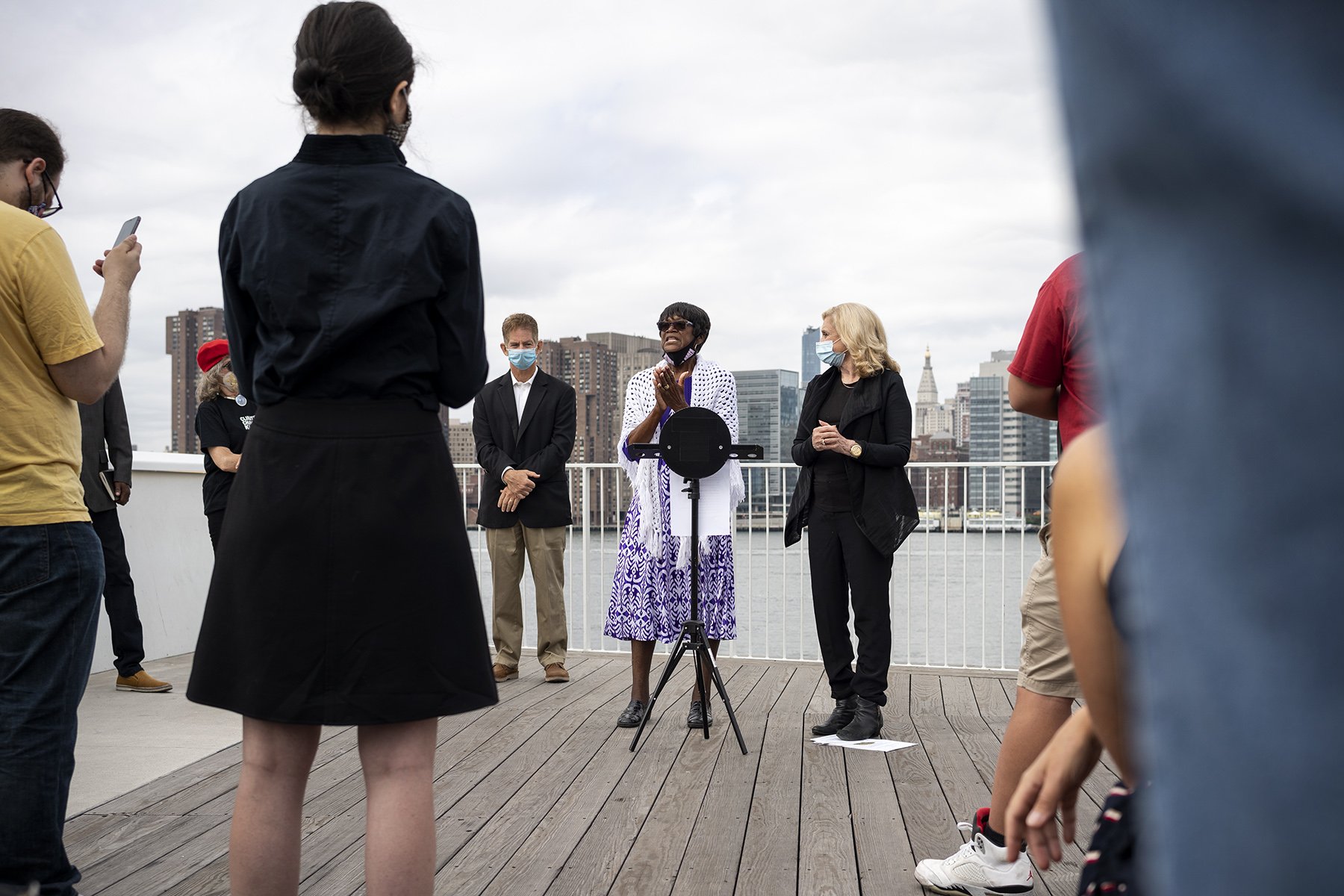
Stan Morse, lead organizer of the Justice for All Coalition, detailed the environmental horrors suffered by NYCHA tenants.
“NYCHA residents are already suffering as it is, so whenever there’s a problem in this country – no matter what it is – those at the bottom are the ones that are going to be hurt the most,” he said. “We are already in an environmental crisis in NYCHA. There’s mold in the apartments. The buildings are falling apart. It is an environmental disaster.”
April Simpson, of the Queensbridge Tenants’ Association, offered a more optimistic outlook.
“I’ve been seeing our communities recycling in hopes of doing our part in saving our planet,” she said. “I often listen to my seniors who speak of the drastic change in the seasons as well as my own personal experiences. We now know that the change in seasons is due in part to climate change, and it’s surreal. I pray we can rectify this situation before it’s too late.”
When this reporter asked Maloney about the role of environmentally-friendly mass transit, particularly high-speed rail, in addressing climate change, she touted her work in helping to secure construction of the Second Avenue extension of the subway system, calling the lack of a high-speed rail that services the whole country “a national scandal,” and lamented the hostility to such endeavors by most members of Congress.
“You can go to Paris and connect to London on high-speed rail, you can go to China all over, Japan, everybody’s got high speed rail,” said Maloney. “We’ve got to invest in it, we need to work with it.”


